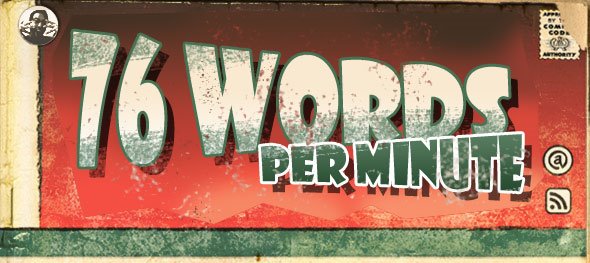Typically, the commencement speakers of the past have been most excellent. Steve Jobs two years ago was memorable for his appeal that exiting students realize how difficult it is to realize their dreams. The year after saw Tom Brokaw revealing how personal relationships are formed through three-dimensional interaction and emotions. My graduating class saw Ms. Fiorina speak of how humble beginnings and family can yield greater results than one could ever dream. Mr. Gioia, while not as well-known, aptly fit this bill in a passionate and humorous entreaty that exiting students recognize the cultural significance the Arts has on society. There's some really good bits all over the place in his speech, but I particularly liked his opening for its frankness:
I know that there was a bit of controversy when my name was announced as the graduation speaker. A few students were especially concerned that I lacked celebrity status. It seemed I wasn't famous enough. I couldn't agree more. As I have often told my wife and children, "I'm simply not famous enough."
Unfortunately, this tends to be a concern for most alumni before their commencement. When Harvard and USC are busy having movie stars lined up to give speeches, it's disheartening when your university books a CEO that many haven't heard of. Fortunately, these people tend to give great speeches. When I first heard Carly was giving our speech, I was dejected, but it happened to be one of the best live speeches I'd heard in a long time. Mr. Gioia lives up to this tradition, but before getting into the meat and potatoes of his address, he begins thusly:
There is an experiment I'd love to conduct. I'd like to survey a cross-section of Americans and ask them how many active NBA players, Major League Baseball players, and American Idol finalists they can name.
Then I'd ask them how many living American poets, playwrights, painters, sculptors, architects, classical musicians, conductors, and composers they can name.
I'd even like to ask how many living American scientists or social thinkers they can name.
Obviously, there is a disparity in this experiment. The crux of his argument hinges upon the "findings" of this pop survey in that the popular entertainment of our day has shifted from subjects and persons that challenge you, to those which serve only to entertain you. While there is certainly a similar level of inspiration, Mr. Gioia decries that the arts have received short shrift in this case. As he explains:
Today no working-class or immigrant kid would encounter that range of arts and ideas in the popular culture. Almost everything in our national culture, even the news, has been reduced to entertainment, or altogether eliminated.
Which seems unfortunate if not altogether sad. Understandably, this base entertainment isn't the sole factor in belittle the arts in our society, but a result of what many call the "dumbing down of America." While it seems to stem from television and the media, Mr. Gioia does not place the sole blame upon consumption, but places it somewhat on the shoulders of public education's willingness to cut programs creating enrichment and stresses the importance of instilling such passions at a young age:
There are so many other ways to lead a successful and meaningful life that are not denominated by money or fame. Adult life begins in a child's imagination, and we've relinquished that imagination to the marketplace.
According to Gioia, it's this "marketplace" that has the greatest effect on culture's sublimation. He cites endorsements, movie plugs, and advertising on television. He cites Hollywood's continued role in politics as salespeople. Eventually, it's not this yearning for commerce that he feels the public should focus on:
The role of culture, however, must go beyond economics. It is not focused on the price of things, but on their value. And, above all, culture should tell us what is beyond price, including what does not belong in the marketplace. A culture should also provide some cogent view of the good life beyond mass accumulation. In this respect, our culture is failing us.
Furthermore:
At 56, I am just old enough to remember a time when every public high school in this country had a music program with choir and band, usually a jazz band, too, sometimes even orchestra. And every high school offered a drama program, sometimes with dance instruction. And there were writing opportunities in the school paper and literary magazine, as well as studio art training.
So, Gioia reiterates the importance of instilling artistic culture at an early age yet again along with placing a little blame on the current climate of price before value. This especially permeates on the internet itself, where I had a difficult time finding even one competent and active community discussing saxophone musicianship, yet there are several copycat gossip websites littered about the ether. Sure, I find myself browsing these for entertainment, but what does that say about the amount of people interested in playing an instrument many might identify with Kenny G and Bill Clinton instead of Charlie Parker and John Coltrane? Does it seem elitist at all? Perhaps, but the passion you need to explore the arts is equal opportunity:
What is the defining difference between passive and active citizens? Curiously, it isn't income, geography, or even education. It depends on whether or not they read for pleasure and participate in the arts. These cultural activities seem to awaken a heightened sense of individual awareness and social responsibility.
I find myself guilty of this on a couple of points. First of all, maybe I'm not as socially responsible as I could be, maybe I'm more willing to sit myself down on the couch and bathe myself in cathode rays, and maybe that's just the tip of the iceberg. Reading his speech helped me realize that there's much more I could be doing for myself. In closing, he reaffirms how rewarding immersing yourself in the arts can be:
Art delights, instructs, consoles. It educates our emotions. And it remembers. As Robert Frost once said about poetry, "It is a way of remembering that which it would impoverish us to forget." Art awakens, enlarges, refines, and restores our humanity. You don't outgrow art. The same work can mean something different at each stage of your life. A good book changes as you change.
All of this I agree with and this is why many should be a strong proponent of supporting local artists and art communities. We are particularly lucky to live in a city with a burgeoning and impressive arts community of both the high and lowbrow varieties. This closing paragraph is a declarative truth to Gioia and hopefully to many others, and is inspiring in its conviction. So while I may have not been there to witness the entire speech firsthand, I find myself moved.


No comments:
Post a Comment